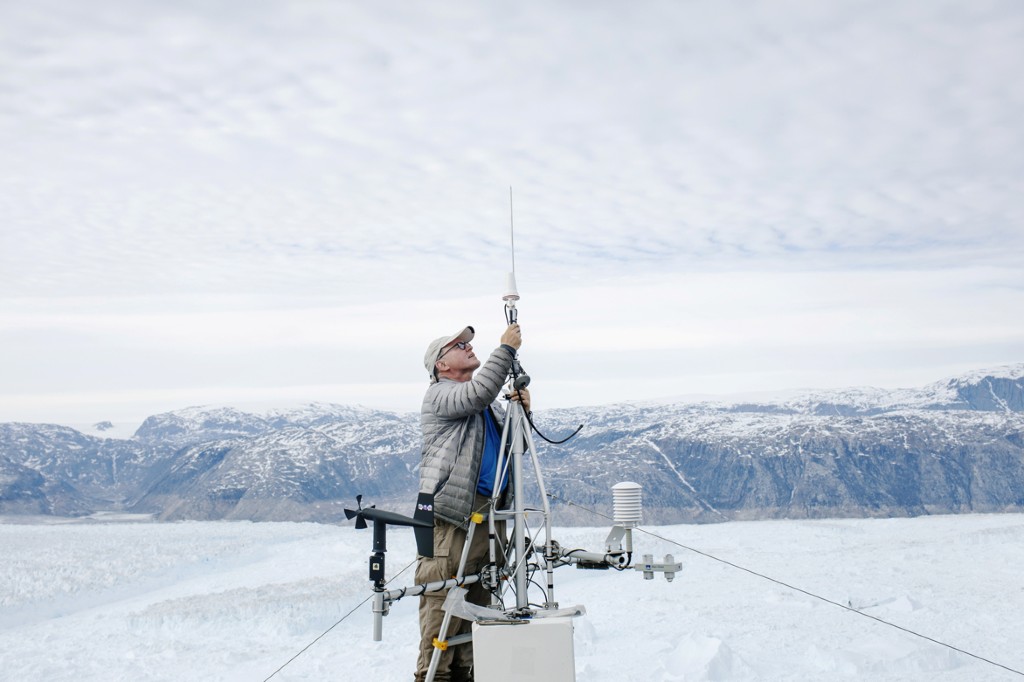
Institutions, science funders, data repositories, publishers, researchers and scientific societies from all scientific disciplines must work together to ensure all scientific data are easy to find, access and use, according to a new commentary in Nature by members of the Enabling FAIR Data Steering Committee.
The Enabling FAIR Data project, convened by AGU and funded by Arnold Ventures, brought together hundreds of partners from across the geoscience community to make geoscience data more open and accessible. The scientific data underlying published studies is often difficult to find and access, potentially hindering new scientific research, according to Shelley Stall, senior director of data leadership at AGU and program manager for the project.
The Enabling FAIR Data project worked over 18 months to adopt a set of principles to ensure data connected to scholarly publications are FAIR — findable, accessible, interoperable and reusable. More than 100 repositories, communities, societies, institutions, infrastructures, individuals and publishers in the Earth, space and environmental sciences have already signed onto the Enabling FAIR Data Commitment Statement for handling data based on these principles.
In the new commentary in the journal Nature, the Enabling FAIR Data Steering Committee is calling on the entire scientific community across all scientific disciplines to sign onto this commitment statement. The group also lays out a set of changes necessary to shift research culture more broadly.
“This paper lays out three primary areas where we need help to change the culture around research data – making depositing data in repositories a priority, recognizing and incentivizing open data practices, and funding global infrastructure to support open data.” said Stall, lead author of the new commentary. “We are saying to every single science community out there, let’s work together to coordinate efforts.”
The Enabling FAIR data project demonstrated stakeholders can make significant progress by working together across traditional boundaries of publishing, repository curation and geoscience disciplines, said Lynn Yarmey, director of community development for the Research Data Alliance, a partner organization in the Enabling FAIR Data project and project manager for the effort.
Rather than coming up with a single solution, the Enabling FAIR Data project realized all stakeholders needed to adjust their data practices together, with the biggest opportunities for advancement coming from alignment across publishers and data repositories, said Yarmey, who is a member of the steering committee and a co-author of the new commentary.
“This project brought together critical stakeholders from publishing and repository curation from across geoscience disciplines. We found alignments in the excellent work from these communities to move the whole of the domain forward.” Yarmey said “Working together was key, and we encourage others to adopt this approach to data.”
Making data open and accessible
Supporting data for only about 20 percent of published papers are available in scientific repositories where they can be easily accessed and used. The rest of these data are scattered with varying levels of management, curation and openness. Data are often left sitting on a researcher’s computer or stored on old disks or on paper. Limited funding and support for support for sharing and curating data have added to the challenges.
Changing how data are handled by working with FAIR-aligned repositories will open up new scientific opportunities, according to the authors of the commentary. For example, weather prediction can benefit from accessing meteorological and other data from around the world, and observational Earth science data gathered today could be used by researchers decades from now in new types of research yet to be developed.
“If you consider the scientific process, just about every research project is centered around data,” Stall said. But the cost of getting that data can be very expensive. Anecdotally, a researcher can spend about 80 percent of their time on discovering, creating, and preparing data for research, she said.
“If we can flip that around such that 80 percent of a scientist’s time is on their research, then all of a sudden we’ve significantly increased opportunities for new research outcomes,” Stall said. “It really is an investment in the future.”
Enabling FAIR Data
The Enabling FAIR Data project began in 2017 and involved participation from more than 300 stakeholders across the Earth, space and environmental sciences. Key partners on the project included publishers, repositories, data communities, librarians, data infrastructure providers and others. These include Earth Science Information Partners (ESIP), Research Data Alliance (RDA), Science, Nature, Proceedings of the National Academies (PNAS), National Computational Infrastructure (NCI), AuScope, Australian Research Data Commons, Center for Open Science and other groups.
The goal of the project was to align practices and adopt common approaches to enable findable, accessible, interoperable, and reusable (FAIR) data across the Earth, space and environmental sciences. The project adopted the FAIR data principles that recommend scientific data be findable by anyone using common search tools, accessible so that the data can be examined, interoperable so that comparable data can be analyze and integrated together, and reusable by other researchers and the public.
The group formalized a set of objectives and high-level practices into the Enabling FAIR Data Commitment Statement that has tenets directed at each stakeholder group: repositories, publishers, societies, communities, institutions, funding agencies and organizations, and researchers.
“Earth and space science data are a world heritage, said AGU CEO/Executive Director Chris McEntee. “Properly documented and archived, they will help all scientists understand the Earth, planetary, and heliophysics systems, and accelerate discoveries and solutions. The Enabling FAIR Data commitment statement is the critical first step toward developing best practices for publishing and sharing scientific data.”
